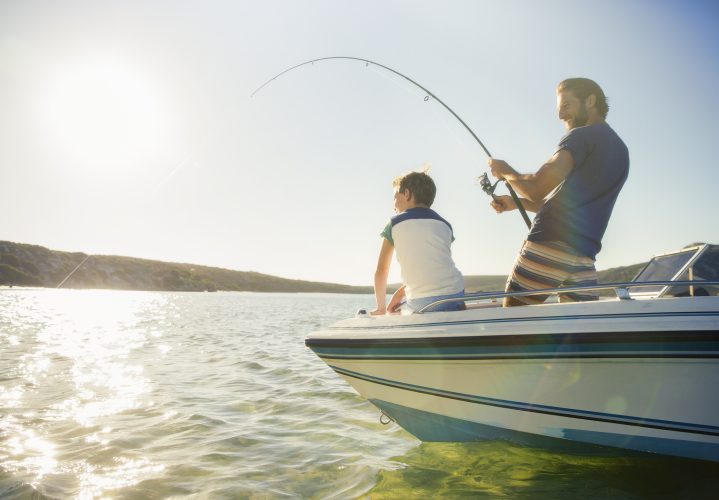Everything You Need to Know About Boating Laws in Ontario
Ontario is home to roughly one fifth of all the freshwater on Earth. Beyond the Great Lakes, Ontario contains over 250,000 lakes. It’s no wonder why millions of Ontarians take to them each Summer, many by way of boats, or what Transport Canada refers to as “Pleasure Crafts”.
With the temperature rising, boats are beginning to crowd Ontario’s lakes. Here’s everything you need to know before getting on the water, so you are compliant with the law and keeping yourself and others safe.
Boating Licenses: Pleasure Craft Operator Cards
Pleasure Crafts are vessels on the water which are used for “pleasure, recreation or daily living.”[i] This means that the vessel is not used for any commercial purpose; charging people money to drive or ride on your boat would declassify it as a Pleasure Craft. There are many kinds of Pleasure Crafts; however, only motorized boats require a pleasure craft operator card (“PCOC”).
At its core, a PCOC is equivalent to an Ontario Class G driver’s license. The major similarity between a PCOC and a G license is that they are both valid for life upon earning them. There are, however, four key distinctions:
- A PCOC is the only class of boat operator’s licenses, whereas a G license is the third and final step in graduating as a fully licensed driver in Ontario;
- Transport Canada issues PCOCs, whereas driver’s licenses are issued by the Ontario Ministry of Transportation;
- There are no competency exams on the water. You are only required to take a licensing course, the majority of which is administered online; and
- Depending on the vessel’s horsepower, PCOCs are available to persons as young as 12 years old.
Note that for criterion #4: children under age 16 are not free to drive a boat without supervision. Anyone under 16 with their PCOC is still required to be supervised by an adult. In this way, the PCOC belonging to a 12-year-old is like a class G1 driver’s license, subject to the other three distinctions.
It is illegal to operate a pleasure craft without a PCOC issued to you. Your PCOC must also be with you at all times while you are on a boat that you are driving or intend to drive.
General Safety and Accident Prevention
There are no overarching speed limits in Canadian freshwater sources, but there are situational restrictions on speed and horsepower. The Vessel Operation Restriction Regulations prohibit speeds of over 10km/h within 30m of Ontario shorelines, with the exception of waterskiing, which can be done at higher speeds on routes perpendicular to the shoreline.[ii]
Other than that, your speed is generally at your discretion. This means that, as a licensed boater in Ontario, the safety of everyone on the lake is in your hands. Ensure that you do not operate at high speeds unless your path is totally clear, and slow down when you encounter other boats, swimmers, or obstacles.
It is important to remember that just like a motor vehicle, it is illegal to operate a boat or watercraft while under the influence of drugs or alcohol. Impaired boating is a crime that could cost you a fine, land you in jail or result in both. If convicted of impairment boating, you will have a criminal record. In Ontario, the fines and penalties for a person who is drinking and boating are the same as those for a person who drinks and drives. Ontario boaters convicted of operating a boat under the influence may have their driver’s license suspended for a minimum of one year. Ontario’s Ignition Interlock Program applies to those convicted of drunk boating.
Conclusion: Do’s and Don’ts of Boating
Boating is a fun activity that we in Ontario can enjoy for a short time. Safety, common sense, and respect are essential when operating a watercraft. Please remember to be a careful driver or an alert passenger so that everyone can have a safe and pleasurable summer on the lake.
Below are some best practices for boating:
DO |
DON’T |
|
|
|
|
|
|
|
|
|
|
|
|
The information contained in this blog does not constitute legal advice or a comprehensive overview of boating laws and regulations. You must do your own research and due diligence before operating a boat/watercraft. If you have been involved in a boating accident, please contact a lawyer at Derfel Injury Lawyers to discuss your options.
This article was co-authored by law student Rachel Weitz.
[i] Non-Pleasure Vessel or Pleasure Craft? By Transport Canada, 2018, online: <https://tc.canada.ca/en/marine-transportation/marine-safety/non-pleasure-vessel-pleasure-craft>.
[ii] Vessel Operation Restriction Regulations (SOR/2008-120), ss. 2(7)-(8).
